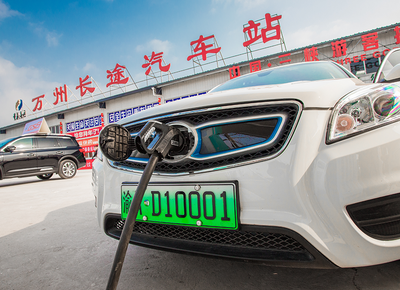Mass Demand for EVs ?
A Green-vehicle story for car shoppers concerned with fuel economy, hybrid vehicles, electric vehicles and CO2 emission.
Electrification and what the future may hold was put under a spotlight at Convenience Summit Europe.
LONDON - June 13, 2019: The NACS reported that the impact of the mass demand for electrical vehicles was explored last week by Philippe Vangeel, secretary general at AVERE, The European Association for Electromobility, at the NACS Convenience Summit Europe event.
Despite numerous studies and collective data, no one has a clear idea when exactly mass demand for EVs will start, but we know it’s coming, stressed Vangeel. Sales of EVs are increasing due to success stories in China, he revealed, but he reminded attendees that electromobility included electric buses and trucks as well. Again, China is leading the electric charge by producing 18,000 electric buses every five weeks—sufficient to replace the entire bus fleet in London every five weeks.
Mass adoption of EVs will be driven by improvements in battery technology, Vangeel said. “The technology of today will not be the technology of tomorrow.” Range, for instance has grown from an initial 200 km to 500-600 km and even 700 km with a solid-state battery. Batteries are also recyclable with more than 90% of the materials in the battery recovered, making the electric car part of the circular economy.
Concerns over charging capacity can be overcome with smart charging, Vangeel said. That means people taking control of when they charge their cars, such as at work, when the car is not being used. And, as with traditional fueling, not everyone will be charging their cars at the same time.
Charging speeds are improving too, Vangeel reported. Initially it took two hours to charge for a 200 km journey but new fast charging has reduced that time to 48 minutes, and now 150kW ultra-fast chargers have cut the time to 16 minutes and are targeting the same 200 km range in just seven minutes.
Charging networks are also being expanded around the world, Vangeel said. In Europe, Ionity has 400 sites spanning the largest cities and is providing high-powered charging, and a similar network exists in the United States.
Modern, high-end electric cars will provide a rich data seam, Vangeel told Summit attendees. “EVs will use massive amounts of data and it will continuously be exchanged,” he said. Data could highlight that a car was standing idle while at work and could create potential car-sharing possibilities during the workday hours, for instance.
Vangeel wrapped up his session by urging attendees to embrace the future of electromobility. “Don’t put your head in the sand, recognize the opportunities,” he said.



